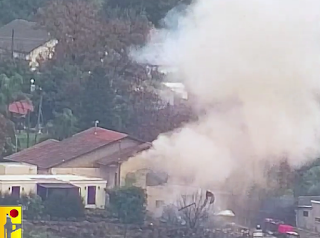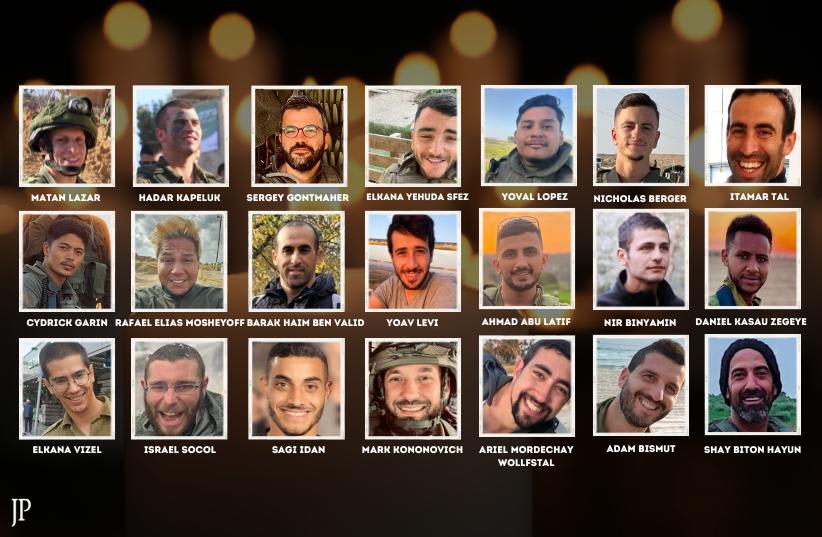Israel is still winning the political war
On the other side, in UN venues highly suited for empty words, Russia and China both ceremonially declared their support for the Palestinians. Yet Moscow has continued to co-operate smoothly with Israel’s air force as it operates over Syria to attack Iran’s Revolutionary Guards, while not one Chinese partner has withdrawn from any joint venture in Israel. Nor did the rising calls to reduce the bombardment of Gaza, led by Belgium of all countries and eventually backed by the White House, have any actual consequence — Israel’s bombing was reduced in any case by the diminishing supply of worthwhile targets.Bonnie Glick and Richard Goldberg: Cut funding to organizations that are empowering Hamas
Likewise, not one of the Arab countries with whom Israel has diplomatic relations has interrupted them in any way, while relations with Egypt have blossomed into a veritable security partnership over Gaza and Sinai. Even more important are the statements of Saudi Arabia’s Foreign Minister, who has made it clear that normalising ties with Israel will not long be delayed once the fighting ends. Even though intelligence exchanges and multiple technology joint-venture negotiations have been underway for some years without any need for official relations, such assurances cannot be overestimated: they are, after all, definitive evidence that Hamas’s assault on October 7 has failed.
The purpose of that deliberately horrific attack was precisely to stop any alliance between the Saudis and Israelis. That was certainly the goal of Iran, which has every reason to dread the fusion of Israel’s technology with Saudi Arabia’s financial resources: Tehran rightly fears this would entail some form of military co-operation, which in turn might bring Israeli air power within a short distance of its Iranian targets.
For now, though, Saudi Arabia’s declared goals are more prosaic. Just like the world’s venture capitalists, the Saudis believe that joint investments in Israeli tech will be profitable. But far more important is Israel’s proximity, which can greatly facilitate the training of Saudi engineers, technicians and skilled workers — thus achieving progress towards the central aim of putting Saudis to work and ending its reliance on expatriate labour. For Israel, it scarcely matters that the Saudis want a quiet Gaza ruled by reliably corruptible Palestinians, just as in the West Bank, before they start investing their billions; after all, the Israelis themselves obviously need some sort of political arrangement to retreat from Gaza without more rockets being launched the day after.
Israel’s diplomatic success is not just due to its changed economics however: its high-tech military equipment has arguably been more influential. It is the reason, for instance, why India has emerged as a steadfast ally, as it relies on Israeli tactical missiles for both its air and naval forces, along with much else. It is also the reason why the Pentagon does not begrudge military aid to Israel — it benefits from a constant backflow of valuable technology, including famous helmet-mounted display at the core of the F-35 fighters that now equip the Air Force, Navy and Marines.
As Congress mulls its next moves on big federal spending bills, members of both political parties are refusing to confront an elephant in the room: Billions of taxpayer dollars are being sent to international organizations enabling Hamas terrorism.Which countries are actually helping Gaza and not just bolstering extremists?
With 34 Americans already murdered by Hamas and six more still held hostage in Gaza, it’s time for Washington to withhold contributions to agencies that actively subsidize, enable or defend the evil the world witnessed on Oct. 7.
The U.S. sends billions of dollars to the United Nations every year and hundreds of millions more to the International Committee of the Red Cross. Are we getting our money’s worth? Hamas certainly is.
Take the UN Relief and Works Agency (UNRWA) for starters. This organization runs schools in the West Bank and Gaza that explicitly teach kids to hate Jews and of course Israel. Many of its staff members are members of terrorist groups such as Hamas. Its facilities are used by Hamas to launch attacks and build terror tunnels. Employees stand accused of celebrating Oct. 7 and even holding some of Hamas’s Israeli hostages in their homes.
UNRWA does not submit the names of its staff, contractors or beneficiaries to the U.S. for counterterrorism vetting. And so, despite funding UNRWA with over $1 billion under the Biden administration, there is no accountability in terms of who has access to that money.
These aren’t shocking revelations — they go back many years. This is what led the Trump administration to cut off all funding to UNRWA in 2018. The Biden administration, however, subsequently reopened the spigot. And with roughly 40 percent of UNRWA’s budget focused on Gaza, that’s $400 million of U.S. funding to an organization that employs Hamas members and whose employees are credibly believed to have participated in its crimes against humanity.
Absent an outright prohibition in an appropriations law, Congress may greenlight hundreds of millions more this year, both in the regular budget and the president’s requested emergency supplemental.
The same goes for the International Committee of the Red Cross, to which the U.S. will send another $600-700 million this year as if on autopilot. This, while the Red Cross refuses to pressure Hamas to allow medical visits to the hostages it kidnapped, and after an apparent cover-up of Hamas’s use of hospitals as both terror base camps and holding centers for hostages.
Israeli news has repeatedly covered stories of aid entering Gaza only to be stolen by Hamas or looted by desperate Palestinian civilians. While these incidents are likely rampant, one of the better-known reports of this was from mid-December when Kan released footage of alleged armed individuals stealing UAE-donated aid on the streets of Gaza. In reality, the men seen atop the truck in that footage are not Hamas or criminal gangs but local Palestinians hired by the United Arab Emirates to ensure that their aid is delivered safely to those who need it most.
Numerous countries are playing a role in Gaza, but not all may be as well coordinated or as altruistic.
Qatar, for example, recently brokered a deal to deliver medicine to Israeli hostages held by Hamas in Gaza. While playing a central role in the delivery of aid, as well as in negotiating for the release of Israeli captives seems praiseworthy, the reality is that the Qatari government has long been known as the terror group’s most important patron and the gracious host of Hamas’ most senior leaders.
Playing all sides in the conflict
Qatar is playing all sides, gaining points for negotiating on behalf of Israel with the very murderous group they lavishly domicile, while the civilians in Gaza suffer from the results of Hamas’s actions.
The UAE, on the other hand, is working daily to improve the humanitarian situation in close coordination with the Israeli and other regional governments.
Along with countries such as Bahrain, Jordan, and Egypt, the UAE maintains strong open ties with Israel, but Bahrain is its only ally in so singularly and consistently denouncing extremism.
The UAE is providing unconditional humanitarian aid to Gaza, without any of the political brinkmanship of some other actors. Since the start of the war, it has sent over 140 airlifts to Gaza; set up six desalination stations; and delivered over 200 trucks of aid along with quietly opening a 150-bed field hospital which has so far treated around 1,700 patients. It has also transferred hundreds more patients to Abu Dhabi for further care.














_underway_on_8_April_2017.jpeg)



.png)


























